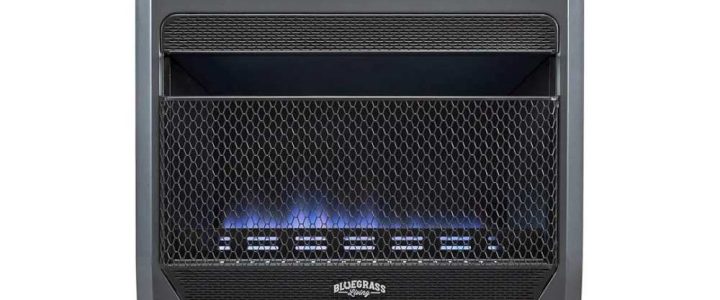A dependable heat source may be a cozy must in the bitter cold of winter. Among the several alternatives available, gas heaters are notable for their price and efficiency. However, only some gas heaters are made equally efficient. Making an educated choice requires having a thorough understanding of the various varieties and their corresponding efficiency considerations. In this article, we delve into the world of gas heaters to determine the most efficient types and what considerations are essential when choosing one.
Types of Gas Heaters
Gas heaters are well known to provide warmth in both business and residential settings. Moreover, knowing the many available varieties may make selecting the best solution for your requirements easier. These are the primary varieties of gas heaters.
1. Convection Heaters
Convection heaters work by means of heating the encompassing air. They have a heating element that warms the air as it travels over or thru it, normally a ceramic or metallic coil. The temperature rises gradually due to the warm air circulating the space. Their quiet operation and consistent heat distribution make convection heaters well-suited for interior use in living rooms, bedrooms, and workplaces.
2. Radiant Heaters
Infrared radiation from radiant heaters immediately warms surrounding people and things. Unlike convection heaters, which warm the air, radiant heaters provide immediate warmth to specific locations or people. This makes them especially useful in drafty or outdoor environments where it might be challenging to maintain constant warmth. Workshops, garages, and patios are typical applications.
3. Blue Flame Gas Heaters
Vent-free or blue flame heaters produce heat by burning gas, which is then dispersed by convection. Because you don’t need a chimney or vent for these heaters to function, you can easily install them in a variety of interior settings. Although effective at heating enclosed spaces, they need enough ventilation to keep carbon monoxide from building up. Moreover, small flats, cottages, and basements are familiar places to find blue flame heaters.
4. Infrared Plaque Gas Heaters
The ceramic plaque used in infrared plaque heaters is covered with a substance that, when heated, releases infrared radiation. The room’s surfaces and objects become heated by this radiation, giving it a cozy feel akin to sunshine. The energy economy and excellent heating of infrared plaque heaters make them highly valued. Large living rooms, warehouses, and business spaces are the usual places to find them.
Factors to Consider When Choosing a Gas Heater
A number of criteria should be taken into account to ensure you get the greatest gas heater for your requirements. These include cost, size and heating capacity, safety features, energy efficiency, installation and maintenance requirements, and size.
1. Energy Efficiency
The Gas Heater’s Efficiency is determined by using its ability to transform gas into heaters. Look for fashions with high Annual Fuel Utilization Efficiency (AFUE) ratings, which imply the percentage of gas transformed into usable warmth. Energy-green warmers keep money on utility payments and decrease environmental impact. High-performance fashions can attain AFUE rankings of 90% or higher, which means they convert almost all the fuel they consume into heat.
2. Safety Features of Gas Heaters
When selecting a gas heater, safety needs to be the primary consideration. To lessen the possibility of mishaps or carbon monoxide poisoning, pick heaters with cool-to-the-contact surfaces, oxygen depletion sensors, and automatic shutdown mechanisms. Should the heater overheat or tip over, automatic shutdown mechanisms cut the power. Simultaneously, oxygen depletion sensors monitor the room’s oxygen levels and turn off the heating if they go too low.
3. Size and Heating Capacity
Select a heater with a suitable heating capacity after considering the size of the area you need to heat. While tiny heaters could need assistance to generate enough warmth, oversized heaters might use more energy than is required. British Thermal Units are often used to quantify heating capacity (BTUs). To choose the appropriate size for your requirements, consult the heating charts and manufacturer guidelines. In general, each square foot of area requires around 20 BTUs.
4. Installation Requirements for Gas Heaters
Examine the setup requirements earlier than shopping for a fuel heater to ensure it’ll work in your space. While many warmers can be set up by homeowners comfortably, others might also need specialized ventilation arrangements or expert installation. Consider electrical needs, clearance gaps from flammable goods, and gas line connections. For instance, ventilation is necessary for vent-free heaters, but correct chimneys or flue installations are necessary for vented heaters.
5. Maintenance Needs
Regular maintenance is essential for keeping gas heaters operating securely and effectively. Look for versions that have easily accessible parts for easier maintenance and cleaning. Increase your heater’s longevity by familiarizing yourself with maintenance procedures, such as replacing filters, inspecting gas lines, and cleaning the burner assembly. Regular maintenance guarantees safe operation, increases efficiency, and avert any problems..
6. Cost and Budget of Gas Heaters
There is a variety of costs for gas heaters to accommodate various budgets. More economical versions may still provide dependable heating performance, even if more expensive ones have more sophisticated and energy-efficient features. Moreover, consider your financial limitations and compare the initial investment to ongoing operational and energy savings. Long-term financial savings from a higher-quality, energy-efficient heater may exceed the initial cost savings due to decreased fuel usage and maintenance expenses.
Conclusion
Choosing the right gas heater entails considering different factors, inclusive of the sort, electricity performance, safety functions, length and heating capacity, installation requirements, protection needs, and value. Each sort of gas heater has its benefits and is perfect for special applications and environments.
